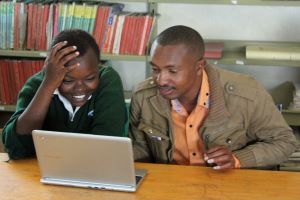
Remote rural schools often have limited access to books, paper and writing materials, as well as intermittent power and no internet access. ARES -- African Ruggedized Education System -- is a Delta and region Rotary solution for the problem of education in rural communities with minimal resources in Kenya and eventually the world.
North Delta Rotarian Bonnie Sutherland has been working in Africa since 1992 when she and her late husband, Don, visited Kenya and saw the great need for teachers and students. In 2011, Bellingham Rotarian Mark Knittel took part in an Rotary service project in Kenya - installing a computer lab in a community library.
Learning about the problems with intermittent power, power surges, dust, heat and theft, Mark, with his extensive background in technology, was determined to find a better way to provide a computer enhanced education model. Mark created a small server that would be rugged to deal with heat, dust and power issues. The case is designed to prevent dust intake, while the components minimize heat issues. The ARES server can be charged overnight and will run on a battery - so that if the school loses power, the system still operates.
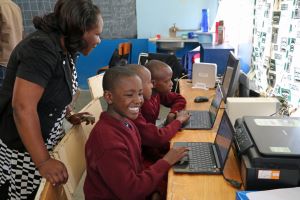 | 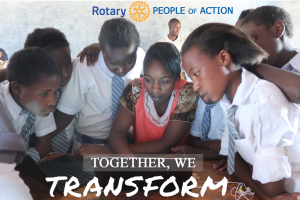 | 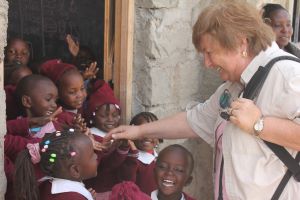 |
| North Delta Rotary member, Bonnie Sutherland, far right, started working in Africa 27 years ago and saw a great need for teachers and students | ||
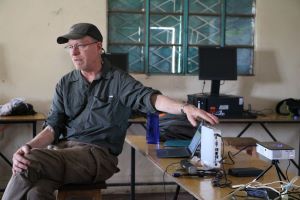 | 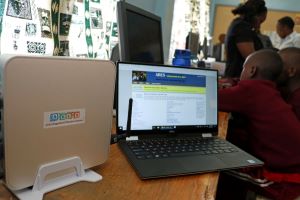 | 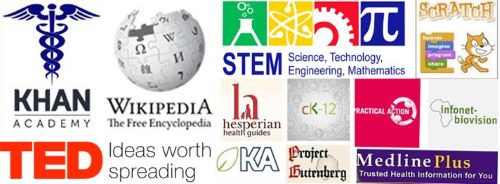 |
With his background in technology, Bellingham Rotarian Mark Knittel, developed the technology for ARES | The ARES hardware comes in a box (left) loaded with global knowledge and connected by wifi to computers on site in the classroom, where internet does not exist | The terabytes of knowledge stored in ARES comes from a wide range of global organizations and is periodically updated |
Working with other charitable groups which create digital educational resources, ARES has educational resources from pre-school to post-grad. ARES also has agricultural guides and medical reference material to serve as a resource for the entire community.
Students access ARES through basic, inexpensive laptops, such as Chromebooks, as well as through existing school computer labs, tablets, smartphones and any other wireless device. Up to 50 wireless devices can connect to the ARES server at a time, with each user able to access different resources on the server.
The power cords stay with the teacher or librarian, and every school is required to build a locked storage room to minimize the risk of theft. Since the data is stored on the server only, it also minimizes any damage that viruses might do.
To the users, it may appear that they are accessing the internet - but they aren't. Everything is on the server and the data is both safe and appropriate for students.
But technology is only part of the solution. The ARES Project also provides training for teachers on how to use and to teach using the ARES materials. Many teachers use only rote memorization and repetition due to the lack of available resources.
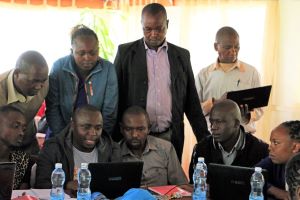 | 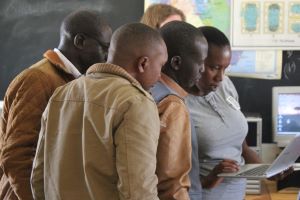 |  |
Teachers explore the ARES system and learn together about the huge educational opportunity | Teachers learn more and plan lessons now including ARES | Rotary clubs in Rotary District 5050, the District, The Rotary Foundation and Government of Canada all contributed to the almost $130,000 project |
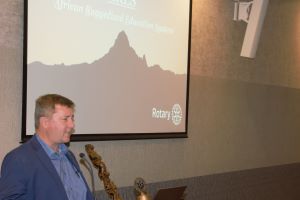 | 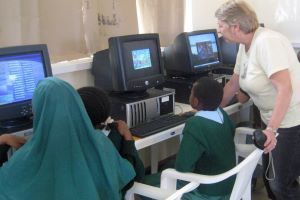 | 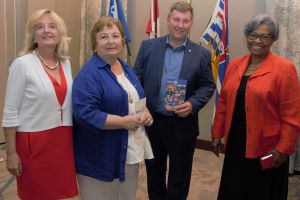 |
Rotary Past District 5050 Governor, of North Delta Rotary Club, spaeks about ARES -- photo by Chris Offer | A wide range of learning for children of all ages and grades is now possible with ARES | Bonnie Sutherland, Sean Hogan (2nd & 3rd left) thanked by President Bridget Jacob (left) and international education advisor Avis Glaze - photo Chris Offer |
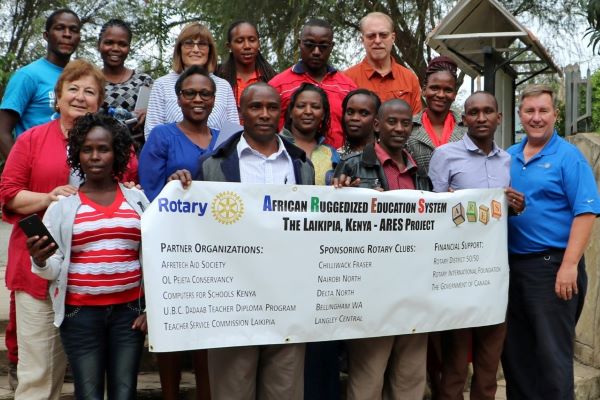 | ||
Many partners have made the ARES project possible. Bonnie Sutherland (left, middle row) and Sean Hogan (front row, far right), and Mark Knittel (back row, far right) join some of the teachers now applying ARES in the classroom | ||
ARES is a revolution in education for rural communities anywhere in the world.
For more information on the ARES Project, visit the ARES website at ares.education.